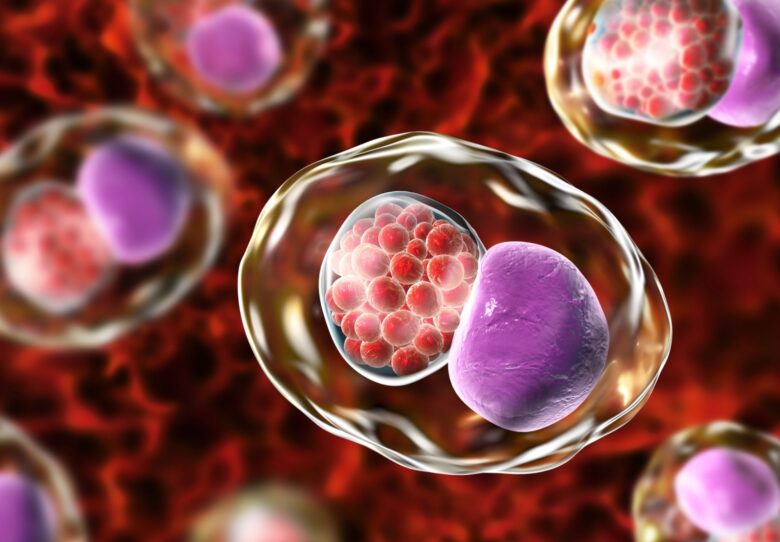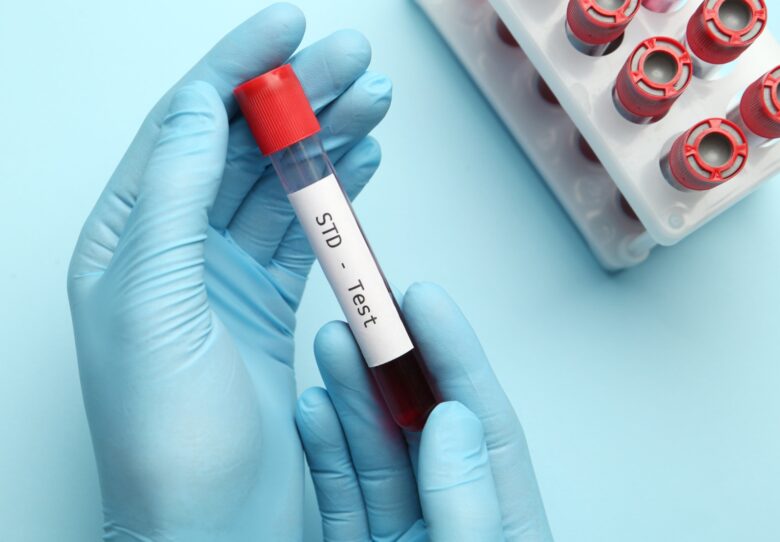Having a sexually transmitted disease (STD) can present unique challenges, both physically and emotionally. It is important to protect yourself, as well as your sexual partners. This guide will provide an overview of the available information regarding safe sex practices for those with STDs. This guide is not intended to replace medical advice; all sexually active individuals should consult their doctor for further advice about their particular situation.

Source: canva.com
Contents
How to Practice Safe Sex if You Have an STD
Every individual is unique and depending on their STD diagnosis, their personal risk levels for contracting or spreading an infection will vary. While no one should ever feel discouraged from pursuing healthy relationships, learning about how to navigate sexual activity safely can help those living with an STD enjoy clean, safe intercourse.
If you have herpes, for example, dating can be particularly challenging due to the stigma surrounding the virus. However, there are herpes dating sites specifically designed for people living with herpes who are looking for romantic relationships. Sites such as positivesingles.com provide a safe space where individuals can connect with others who understand their experience without fear of judgment or rejection due to their status and enjoy herpes dating.
It is important to note that not everyone who contracts or comes into contact with an STD shows symptoms of the disease, however, they can still transmit the disease to another person unknowingly. This can also lead individuals into a state of false security as they may believe they are safe because they do not show any signs or symptoms of their infection.
The following are guidelines for having safe sex when you have an STD:
- Have open and honest communication between both partners prior to any sexual contact
- When applicable, be consistent in taking prescribed medication(s) regularly, as instructed by your healthcare provider – this minimizes opportunities for transmission
- Use barrier protection such as condoms whenever possible – even during activities like oral sex that may not initially appear high risk – to protect against STD transmission
- Get tested regularly for other STDs besides the one that has been contracted despite being symptomless
- Practice monogamy with a partner who has been tested for STDs and always use barrier protection when engaging in unprotected sexual activities

Source: canva.com
Common Types of STDs
When talking about sexually transmitted diseases, it is important to understand the different types of STDs and how they spread. The following list encompasses the most common types.
Bacterial STDs: These are infections caused by bacteria, and can be treated with antibiotics. Examples include gonorrhea, chlamydia, and syphilis.
Viral STDs: These are caused by viruses, and in many cases cannot be cured, although some can be managed with medication. Examples include HIV/AIDS, herpes simplex virus 1 & 2 (HSV-1 & HSV-2), human papillomavirus (HPV), hepatitis B, and cytomegalovirus (CMV).
Parasitic STDs: These are infections caused by parasites such as pubic lice (crabs) or Trichomonas vaginalis. They can often be treated with medication or other methods such as creams or freezing treatments.
What are the symptoms?
Understanding the symptoms of STDs can help people identify when they may have been exposed, which is an important part of protecting themselves and their partners. Knowing the symptoms can also help them choose a safer sex practice that best suits their needs.
For some STDs, there are no or few visible symptoms; however, treatment prescribed by a healthcare provider is necessary even in the absence of visible signs. People who are sexually active should be tested regularly to make sure they are not unknowingly transmitting an infection to others.
The most common symptoms associated with STDs include:
- Burning sensation during urination
- Painful or swollen genitals
- Unusual discharge from the genitals
- Itching or rash in or around the genital area
- Pain during sexual intercourse
- Sores, bumps, or blisters on/near the genitals, rectum, mouth, or throat (symptoms can appear as early as a few days after exposure to an STD)

Source: canva.com
How to Get Tested
The most common type of test involves taking a sample of possible infected tissue or bodily fluid—such as blood, urine, saliva, or fluid collected from sores—and sending it to a laboratory for analysis. Depending on the specific disease, these tests can take anywhere from several days to several weeks for results.
Other tests involve taking swabs from possible infected areas—like the throat or genitals—and using those swabs to detect infections like Gonorrhea, Chlamydia, and Trichomoniasis. These types of tests can be done more quickly in a healthcare provider’s office without having to send samples off for processing in a laboratory.
If you are concerned about your health and want guidance on which STD tests might be appropriate for your situation, it is strongly recommended that you speak with your healthcare provider so they can help provide personalized advice tailored to your individual needs.
The Importance of Communicating with Your Partner
In making sure that you and your partner have a healthy sexual relationship, it may be helpful to ask your partner to share their sexual history before engaging in any activity. This way you can assess risk factors associated with STIs based on each other’s backgrounds.
If the disclosure reveals a previous diagnosis, having an open dialogue about what actions need to be taken to ensure everyone’s safety is imperative. It is also important for partners who are talking about an existing diagnosis to remain respectful and understanding of each other’s feelings and concerns.
Overall, effective communication about STI status should not be seen as intrusive or confrontational but rather as an essential measure necessary for both partners to feel secure within the relationship. In addition, there are many resources available online that provide helpful tips on how to communicate with your partner about health concerns in an effective manner.

Source: canva.com
Conclusion
The risk of transmitting and/or contracting a sexually transmitted infection (STI) exists in any sexual encounter, regardless of the parties involved. Safe sex is vital when you have an STI to ensure your health and the health of any sexual partners. By following up with healthcare providers, testing regularly for STIs and HIV, and engaging in safe sex practices such as correctly utilizing condoms or barriers, individuals with an STI can enjoy a healthy sex life while managing their condition.
